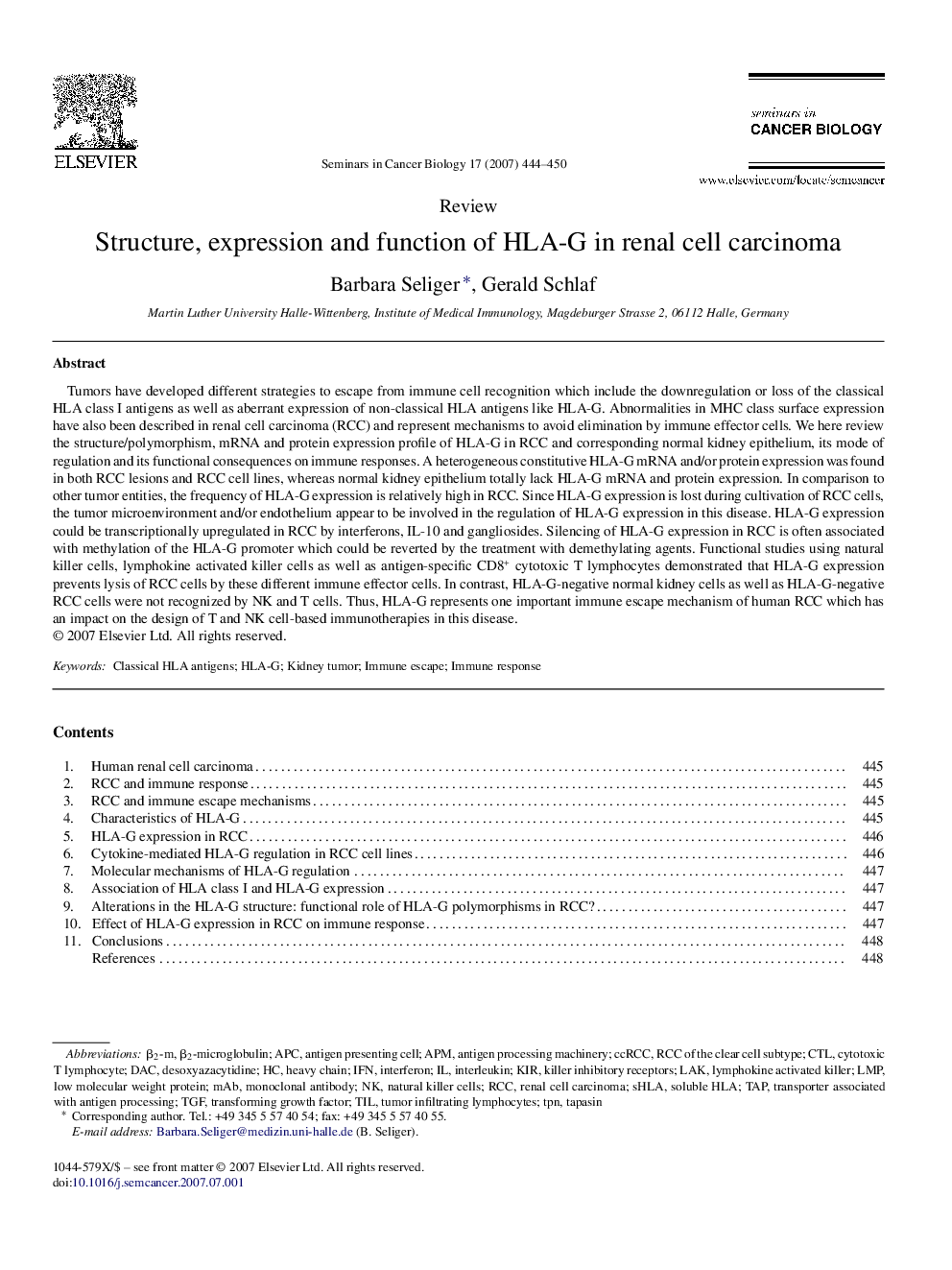| Article ID | Journal | Published Year | Pages | File Type |
|---|---|---|---|---|
| 2024206 | Seminars in Cancer Biology | 2007 | 7 Pages |
Tumors have developed different strategies to escape from immune cell recognition which include the downregulation or loss of the classical HLA class I antigens as well as aberrant expression of non-classical HLA antigens like HLA-G. Abnormalities in MHC class surface expression have also been described in renal cell carcinoma (RCC) and represent mechanisms to avoid elimination by immune effector cells. We here review the structure/polymorphism, mRNA and protein expression profile of HLA-G in RCC and corresponding normal kidney epithelium, its mode of regulation and its functional consequences on immune responses. A heterogeneous constitutive HLA-G mRNA and/or protein expression was found in both RCC lesions and RCC cell lines, whereas normal kidney epithelium totally lack HLA-G mRNA and protein expression. In comparison to other tumor entities, the frequency of HLA-G expression is relatively high in RCC. Since HLA-G expression is lost during cultivation of RCC cells, the tumor microenvironment and/or endothelium appear to be involved in the regulation of HLA-G expression in this disease. HLA-G expression could be transcriptionally upregulated in RCC by interferons, IL-10 and gangliosides. Silencing of HLA-G expression in RCC is often associated with methylation of the HLA-G promoter which could be reverted by the treatment with demethylating agents. Functional studies using natural killer cells, lymphokine activated killer cells as well as antigen-specific CD8+ cytotoxic T lymphocytes demonstrated that HLA-G expression prevents lysis of RCC cells by these different immune effector cells. In contrast, HLA-G-negative normal kidney cells as well as HLA-G-negative RCC cells were not recognized by NK and T cells. Thus, HLA-G represents one important immune escape mechanism of human RCC which has an impact on the design of T and NK cell-based immunotherapies in this disease.
